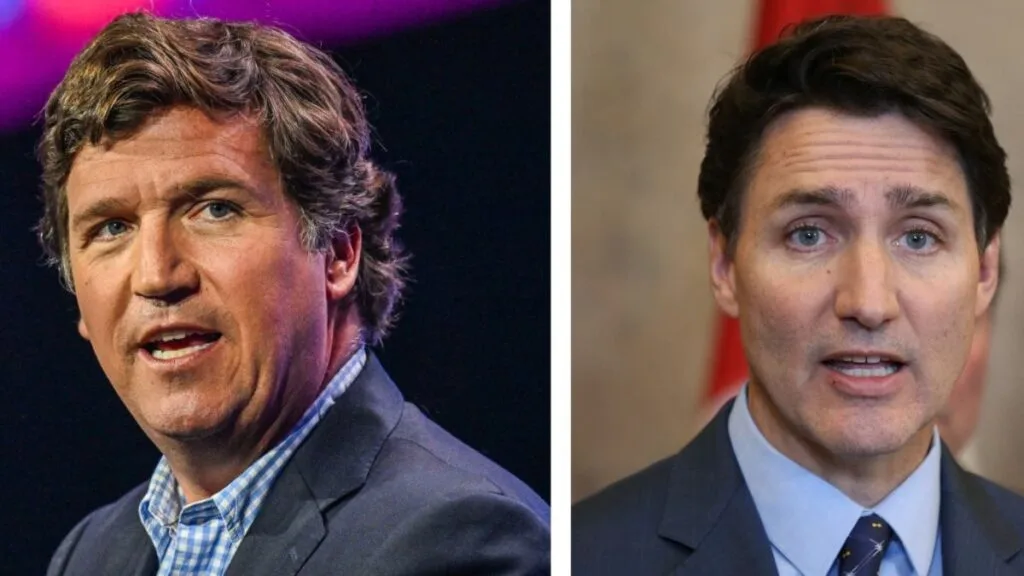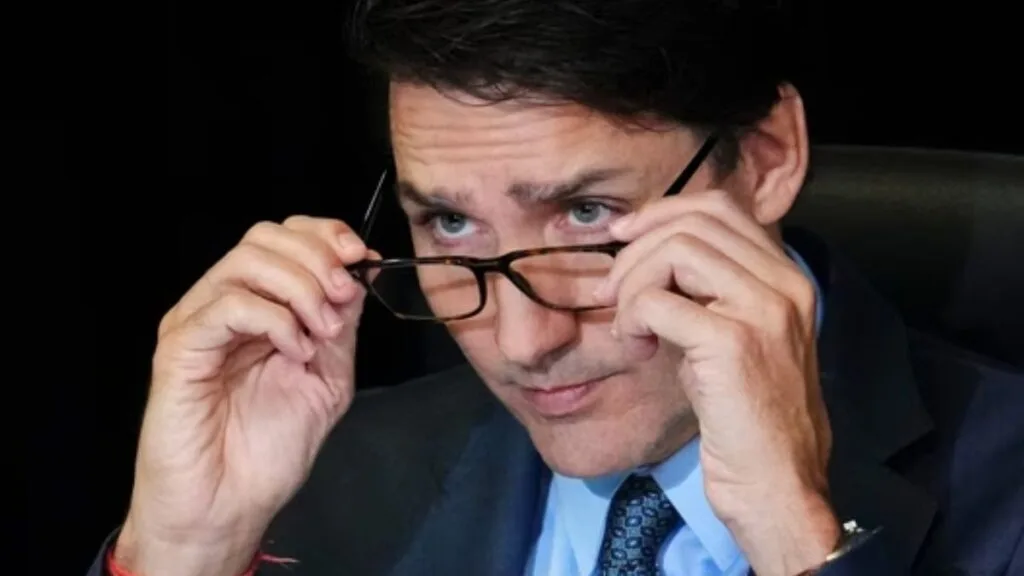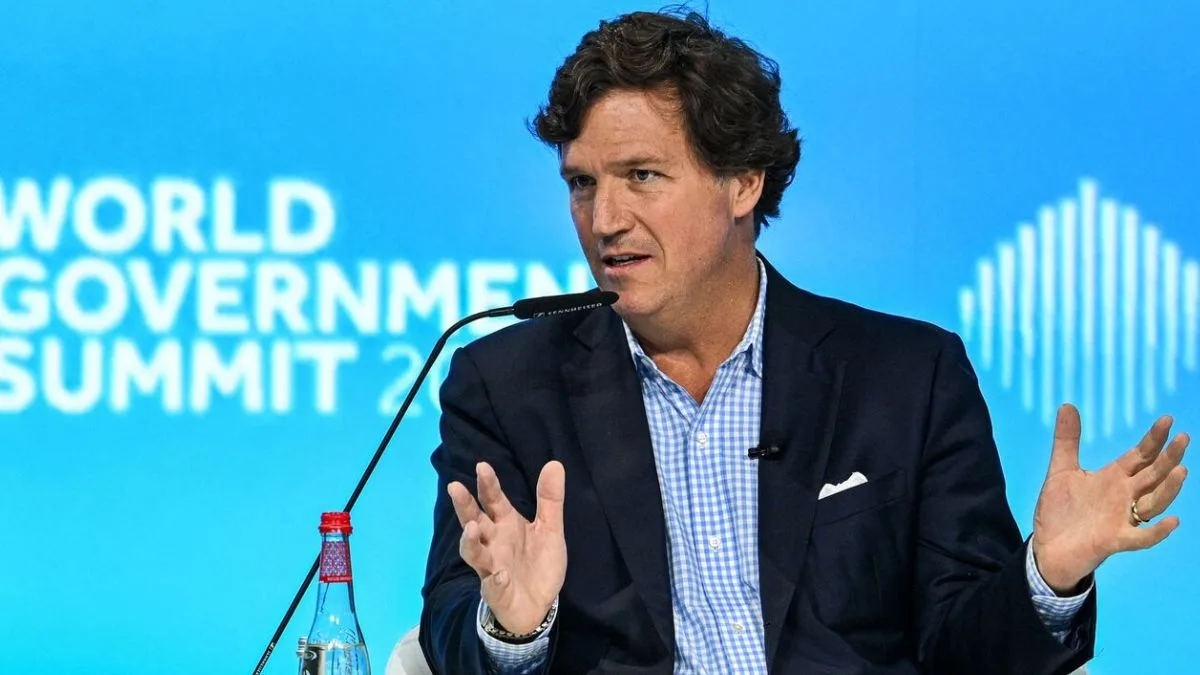Tucker Carlson, a prominent media figure in the United States, has frequently sparked debates over his views on international politics, including his remarks on Russia and Justin Trudeau, the Prime Minister of Canada.
His comments have led to widespread discussions, especially in light of recent geopolitical tensions and diplomatic relations. Carlson’s perspectives, often seen as controversial, have resonated with specific audiences, and his commentary on Russia’s involvement in global affairs and Trudeau’s leadership have garnered significant attention.
Tucker Carlson and Russia
Carlson has consistently voiced opinions on Russia, positioning himself against the mainstream narratives often shared in Western media. He has raised questions about the portrayal of Russia as a global adversary, suggesting that much of the animosity stems from outdated Cold War ideologies rather than contemporary geopolitical realities.
Carlson’s critique of U.S. foreign policy: A central theme in Carlson’s commentary is his critique of U.S. foreign policy toward Russia. He frequently suggests that the U.S. government, driven by both Democratic and Republican administrations, has been overly aggressive in its stance toward Russia, unnecessarily escalating tensions.
Carlson has called for a more nuanced approach, urging diplomatic engagement over military threats or economic sanctions.
Defending Russia’s strategic interests: In various broadcasts, Carlson has defended Russia’s strategic interests, particularly in regions like Eastern Europe. He argues that Russia, much like any sovereign nation, has legitimate concerns about its security, especially with NATO’s expansion near its borders.

Carlson’s narrative often emphasizes the need to view Russia as a rational actor on the world stage, rather than an outright aggressor.
The Ukraine conflict: Carlson’s stance on the Russia-Ukraine conflict has been particularly polarizing. While many Western commentators condemn Russia’s military actions in Ukraine, Carlson has questioned the extent to which the U.S. should be involved in this dispute.
He believes that American interests are not directly at stake, and U.S. intervention could lead to unintended consequences. His detractors argue that this position downplays the seriousness of Russia’s actions, while his supporters appreciate his focus on America-first policies.
Criticism of Justin Trudeau
Carlson has also been a vocal critic of Justin Trudeau, often painting him as a leader who embodies what Carlson perceives as the flaws of modern liberalism. Trudeau’s policies and public statements have been frequent targets of Carlson’s pointed critiques.
Trudeau and authoritarianism accusations: One of Carlson’s recurring claims is that Trudeau exhibits authoritarian tendencies, particularly in how he has handled domestic unrest. Carlson has referenced Trudeau’s response to the trucker protests in early 2022 as evidence of this, suggesting that the Prime Minister’s use of emergency powers to quell the demonstrations was an overreach.
According to Carlson, Trudeau’s handling of dissent reflects a broader trend of liberal leaders using state power to suppress opposition.
Globalism vs. nationalism: Carlson has often framed Trudeau as a symbol of globalism, contrasting him with nationalist leaders who prioritize the sovereignty of their nations over international agreements or institutions. He argues that Trudeau, through his policies on immigration, climate change, and trade, has aligned himself with global elites at the expense of ordinary Canadians.
Carlson has repeatedly criticized Trudeau for supporting international frameworks that, in his view, undermine national sovereignty.
Trudeau’s stance on climate change: Carlson has also attacked Trudeau’s climate policies, particularly his support for carbon taxes and other measures aimed at reducing greenhouse gas emissions.
Carlson’s perspective is that these policies are burdensome for middle-class Canadians and do little to address the global issue of climate change, which requires cooperation from much larger emitters like China and India. This criticism fits within Carlson’s broader narrative that liberal leaders like Trudeau are out of touch with the economic realities faced by everyday citizens.

Impact on Public Opinion
Carlson’s views on Russia and Trudeau have had a significant impact on public opinion, particularly among conservatives in the United States and Canada. His commentary often resonates with audiences who are skeptical of liberal policies, globalism, and what they perceive as media bias.
However, Carlson’s critics argue that his positions are overly simplistic and fail to acknowledge the complexities of international relations and domestic governance.
Controversies and Backlash
Accusations of Russian propaganda: One of the most common criticisms Carlson faces is the accusation that his defense of Russia aligns too closely with Russian state propaganda. His opponents argue that by downplaying Russia’s aggressive actions and questioning U.S. foreign policy, Carlson is indirectly supporting Russian geopolitical aims.
Some have even gone as far as to suggest that his commentary is harmful to democratic values, as it undermines the global consensus against authoritarian regimes.
Polarizing views on Trudeau: Similarly, Carlson’s attacks on Justin Trudeau have sparked considerable debate. While many conservatives applaud his criticism, others argue that Carlson’s portrayal of Trudeau is exaggerated and fails to consider the challenges faced by any modern leader.
For instance, Trudeau’s handling of the trucker protests, while controversial, was seen by some as necessary to maintain public order during a time of national unrest.
Conclusion
Tucker Carlson continues to be a powerful voice in political media, particularly among conservative audiences. His critiques of Russia’s portrayal in Western media and his harsh rebukes of Justin Trudeau have sparked widespread debate. Carlson’s influence is undeniable, and whether one agrees or disagrees with his views, his ability to shape public discourse is clear.


